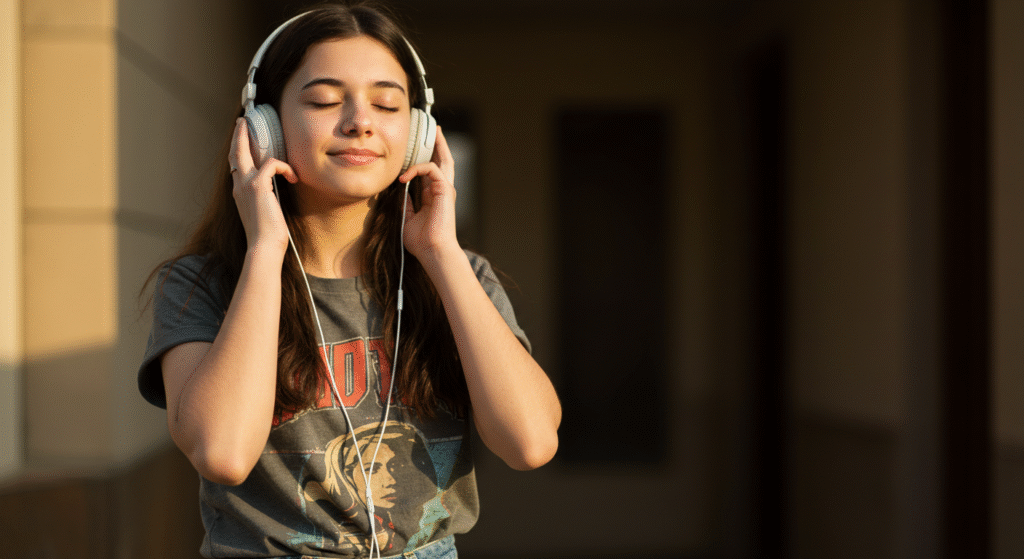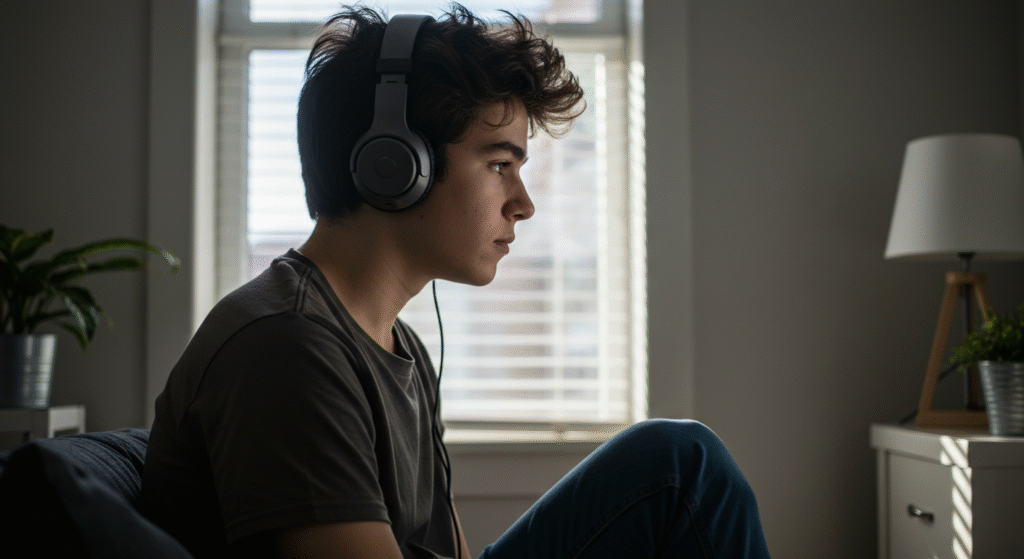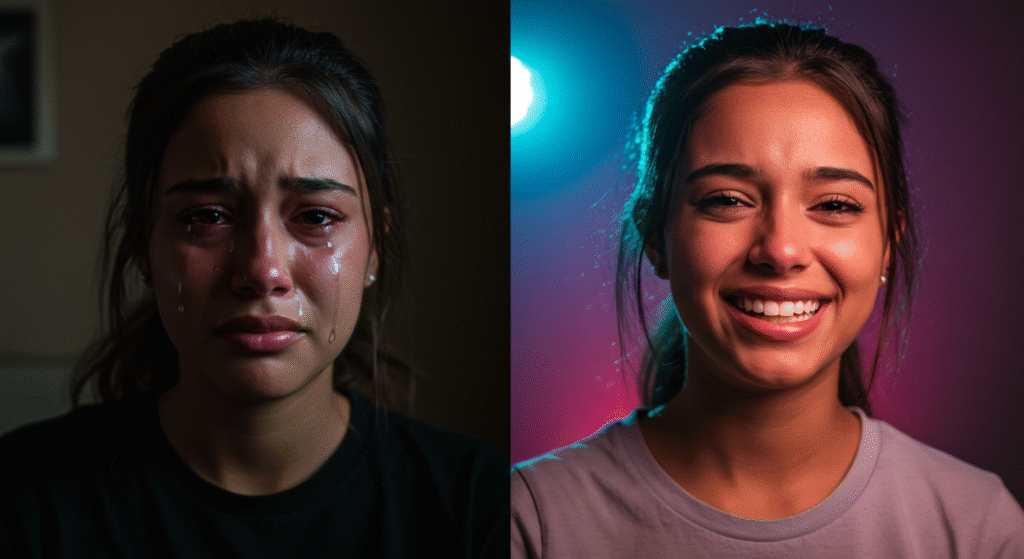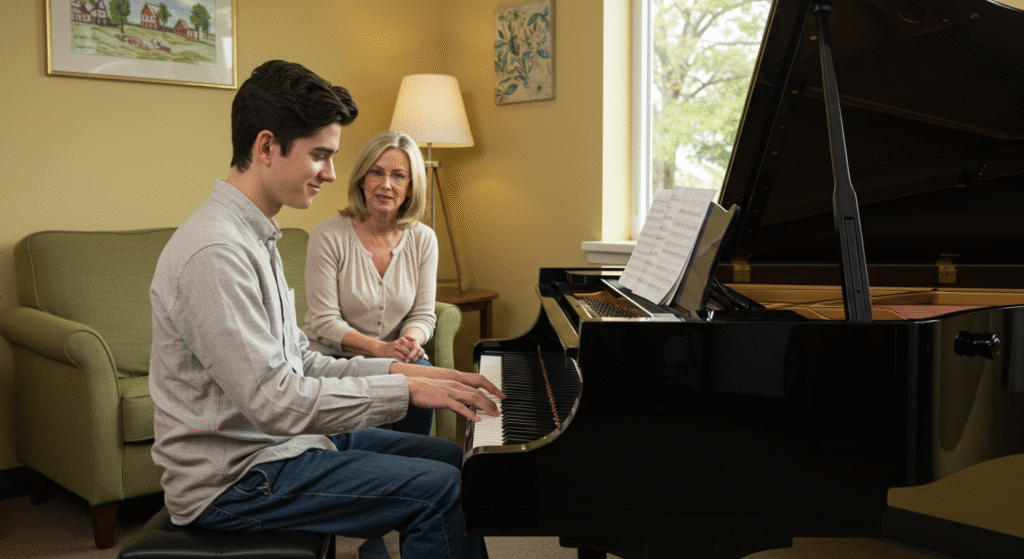Melody, Memory, and Mood
What is the relationship between music and depression—especially for teenagers? To begin with, all sounds are made of sound waves. But what sets music apart from random noise (like a dropped metal pan) is the controlled, rhythmic vibration that creates harmony. A note struck on a piano doesn’t just sound better—it feels better. That’s because musical notes transition smoothly from loud to soft, creating a calming, structured effect on the brain.
And yes, music can influence our moods deeply—even subconsciously.

Music: Soothing the Soul and Lifting the Spirit
You’ve probably heard the saying, “Music soothes the soul.” It’s not just poetic—it’s scientifically accurate. Music activates areas of the brain tied to emotion, memory, and reward. That’s why a specific song can instantly take you back in time.
For instance, I hear Whitney Houston’s “The Greatest Love of All” and suddenly I’m back in a sunny backyard, smelling grilled hot dogs, surrounded by the laughter of loved ones. That emotional memory is etched into my mind by the music—and that’s the power it has.
Teens experience this too. A favorite track becomes a soundtrack to their emotions—whether joy, heartbreak, loneliness, or hope.

The Deep Emotional Impact of Music
Certain notes or chords seem to vibrate in sync with our emotions. That’s why a song can bring chills—or tears. It’s not just emotional; it’s physical. When paired with a powerful moment (like a breakup, loss, or joyful milestone), music leaves a lasting impression.
Here’s the tricky part for teens dealing with depression: if a sad event occurred while a certain song played, hearing it later can trigger that same emotional pain. It can bring back feelings of grief, isolation, or despair, even if the teen isn’t sure why.
But on the flip side, music can also be healing. A feel-good song can lift spirits, motivate, and comfort.

Music and the Subconscious: More Powerful Than You Think
Music doesn’t just stay in your head—it settles into your subconscious. That’s why teens (and adults) find themselves humming tunes without even realizing it. It’s no accident that advertisers invest millions into jingles—they know music sticks, and emotionally attaches us to memories, brands, and moods.
That’s also why music therapy is a growing field, used in treating teen depression and anxiety. Through guided listening, songwriting, or instrument play, music becomes a safe emotional outlet and a tool for healing.

A Reflection Exercise for You and Your Teen
Next time you or your teen find yourselves humming a random song, pause. Ask:
- Where did I first hear this?
- What was I feeling at that moment?
- Why does this song stick with me?
Doing this can build self-awareness, especially in emotionally sensitive teens, helping them connect their musical preferences with emotional triggers or supports.
And yes—when you next hear “I Wanna Dance With Somebody” by Whitney Houston, you’ll remember this article. And maybe, just maybe, smile.
🎵 Happy listening. Healing is possible—one note at a time.

